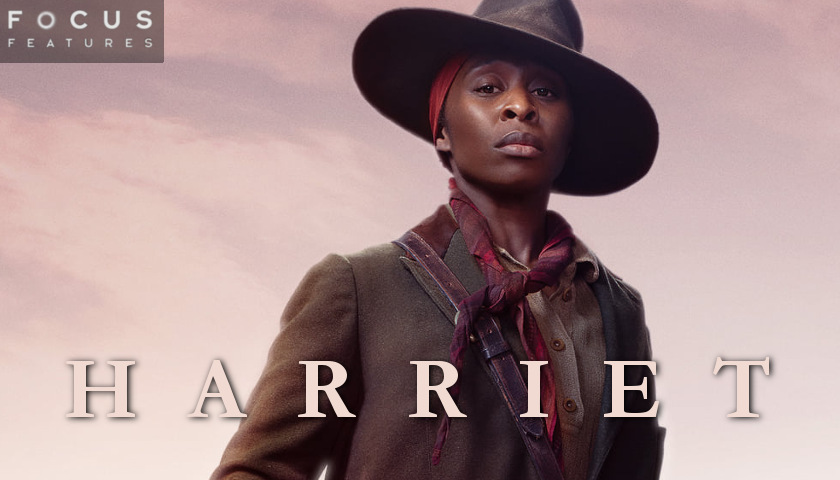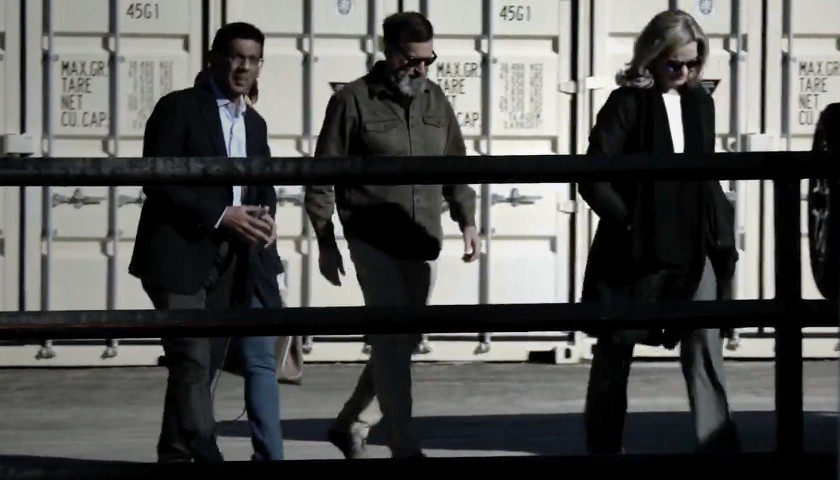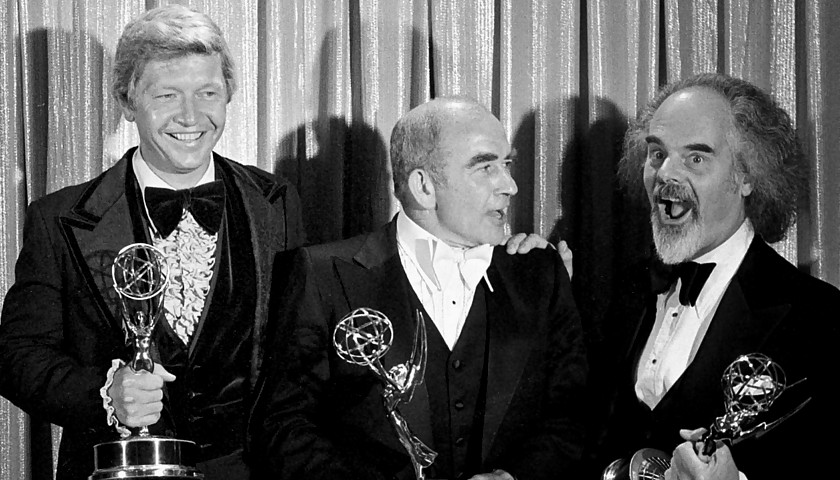There is near-universal agreement among movie critics that Cynthia Erivo, who plays the title role in Harriet, not only carries the movie, but makes it engaging, suspenseful, and rousing. Erivo is nothing short of spectacular, said Breitbart’s John Nolte, and we agree.
For many younger Americans who have had the misfortune to study American history under the strictures of Leftist revisionism, the story of Harriet Tubman will be obscure or unknown. And if it is known it will likely be known in terms of Tubman as the victim of oppression and America’s original sin of slavery.
What the movie Harriet makes clear, and what Cynthia Erivo’s Oscar-worthy performance brings to life, is that Harriet Tubman was no victim, and the two things that empowered her to transcend victimhood were her Christian faith and her gun.
Born into slavery on Maryland’s Eastern Shore in 1822, according to the National Park Service’s history for the Harriet Tubman National Historical Park and Harriet Tubman Underground Railroad National Historical Park, Tubman was originally named Araminta by her enslaved parents. She changed her name to Harriet upon her marriage to freeman John Tubman in 1844; she escaped five years later when her enslaver died and she was to be sold.
Escape-based movies are almost a subgenre of their own and they typically have an almost formulaic structure, Harriet Tubman’s initial flight northward establishes the movie’s Christian message primarily because it does not follow the formula of the typical prison break or flight from behind the Iron Curtain thriller.
There’s no buddy element, there’s no ingenious tunneling or McGivering of locks and prison doors – there’s just one woman alone, determined to overcome any obstacle to her freedom with only her Christian faith and the North Star to guide her.
And as the movie dialogue makes clear, what sustained Harriet Tubman wasn’t a Rocky Balboa-like obsession with accomplishing a goal, it was Tubman’s reliance on God that gave her her great strength and helped her break free from the hell of slavery.
After reaching Philadelphia and freedom Harriet Tubman vowed to return to Maryland to bring her family and friends to freedom; she spent the next ten years making as many as 19 trips into slave territory to rescue them. (Some sources say 13 trips, some say 19 trips South)
It is these trips that provide much of the edge-of-the-seat suspense, keep the film moving at a fast pace, provide much of the picture’s faith-based dialogue and provide for a respectful treatment of the relationship Harriet Tubman had with God.
The Christian Post’s reviewers, John Stonestreet and Maria Baer, wrote that:
Though Tubman prays audibly to God and expects God to answer, He doesn’t always do so in the way she wants or expects. After her own harrowing and unlikely escape early in the film, Tubman believes God wants her to rescue her husband. But she’s horrified when she returns to the South to discover he’s now married to another woman. She comes to believe instead that He sent her back for the sake of others.
Later in the film, Tubman is confused and desperate when her sister refuses to be rescued. She prays for relief, but it doesn’t always come. God speaks to her, sometimes with comfort and sometimes “like a slap.”
Stonestreet and Baer wrote that while some critics think this depiction of the Christian God looks too much like mysticism, they suggest the film portrays Tubman’s relationship with God in a way that is nuanced, complicated, and realistic – and we agree with that observation.
Something else Stonestreet and Baer wrote got our attention and we can’t quite decide if the filmmakers intended it or it was too central to the story to keep out – and that is how crucial guns are to the Harriet Tubman story.
Stonestreet and Baer wrote that some critics noted, with disdain, the movie’s lack of violence and they wondered, given that the movie was already pretty violent, how much more violence those critics wanted.
From our perspective, there was no gratuitous violence, however, it would be hard to find a serious movie where the heroine pulled a gun more often. Harriet isn’t a cartoon or part of a Vin Diesel action picture franchise; it is a serious look at history, and Harriet and her gun are in every poster, trailer and tease for the movie by necessity.
If the central message of the film is Harriet Tubman’s faith and reliance on God to inspire and sustain her fight for freedom, then the visual subtext of the movie is that very often the Lord’s chosen instrument to preserve her life and secure the freedom of her charges was one very large gun.
“I had reasoned this out in my mind; there was one of two things I had a right to, liberty, or death; if I could not have one, I would have the other; for no man should take me alive; I should fight for my liberty as long as my strength lasted…”
“I prayed to God to make me strong and able to fight, and that’s what I’ve always prayed for ever since.”
~ Harriet Tubman
– – –
Image “Harriet” by Harriet Film/Focus Features.






[…] (it’s been praised by a number of conservative critics, including at The Federalist and The Tennessee Star), Harriet never pushes its themes down your throat. Still, I was swept […]
It is great, I suppose, that such a movie gets to be made because of the current hijacking of the National Conversation. I had already decided I did not want to see this film as it seemed too close to virtue signaling.
Despite the 14th Amendment, slavery is still practiced in Tennessee without the conviction of a crime. Abraham Lincoln defined slavery as “I work and you eat.” The current laws regarding “child support” force a person into a part-time slavery in which the part of the pay they are due is paid, instead, to the former lover to help pay for the children’s living costs. That money is taken post-tax, and does not have to be disclosed by the receiver when applying for government aid. To add insult to injury, a fee can be taken to defray “administrative costs”, to encourage compliance of the employer.
Speaking of the 14th Amendment and its “equal protection of the laws” clause, many current politicians sponsor gun control laws from which they EXEMPT THEMELVES and private armed security companies so they and their wealthy friends can have armed protection in flagrant discrimination against citizens. So much for “the rule of law” and “no one is above the law”. Citizen disarmament has always been a chief aspect of slavery and tyranny.
“Both tyrant and oligarch distrust the people and so deprive them of arms.” –Aristotle, circa 300 B.C.
More recently, the National Socialists in Germany and Soviet Socialists in Russia, China and others:
“Germans who wish to use firearms should join the SS or the SA – ordinary citizens don’t need guns, as their having guns doesn’t serve the State.”–Heinrich Himmler, Head of NAZI Gestapo
“In order to overthrow a nation its people must first be disarmed” — Karl Marx, Communist Manifesto
“The Communist Party must control the guns.”
–Mao
That’s interesting since the antebellum era DID impose gun control on blacks who wanted to own firearms while confining the Second Amendment’s protections to whites only. The real purpose of most antebellum cities’s police departments was not to protect the law-abiding from street crime or to insure the public safety, but to help super-wealthy slave owners capture fugitive slaves! Even in the 1960’s, supposed Second Amendment supporters like California Governor Ronald Reagan SUPPORTED gun control against the Black Panthers but not against the Ku Klux Klan and WHITE homeowners. Whites could use their guns to keep their California neighborhoods segregated but blacks could not acquire their own firearms to protect themselves against racist cops or racist vigilantes!
‘Let’s get this straight once and for all!
In 1857 , the United States Supreme Court ruled that black people should be kept as non persons and thus subject to LEGAL slavery. Here is part of the majority opinion by Chief Justice, Roger Taney:
“If black people were entitled to the privileges and immunities of citizens, it would exempt them from the special laws and from the police regulations which southern States considered to be necessary for their own safety.It would give to the persons of the Negro race, who were recognized as citizens in any one State of the Union…THE FULL LIBERTY OF SPEECH IN PUBLIC and in private upon all subjects upon which its own citizens might speak; to hold public meetings upon political affairs, AND TO KEEP AND CARRY ARMS WHEREVER THEY WENT.And all of this would be done in the face of the subject race of the same color, both of free and slaves, inevitably producing discontent and insubordination among them, and endangering the peace and safety of the State.”
–1857 SCOTUS, Dred Scott vs. Sanford, majority opinion,
Disarming people and keeping them that way has always been a chief aspect of slavery down through history. And regarding the means of keeping and carrying the means of self defense, we NOW have a significant portion of our ruling class who want to take from us what they have and keep for themselves.
“The possession of arms is the distinction between a freeman and a slave. He, who has nothing, and who himself belongs to another, must be defended by him, whose property he is, and needs no arms. But he, who thinks he is his own master, and has what he can call his own, ought to have arms to defend himself, and what he possesses; else he lives precariously, and at discretion.” –James Burgh, 1714-1775, English statesman (before England devolved into disarmed barbarism)